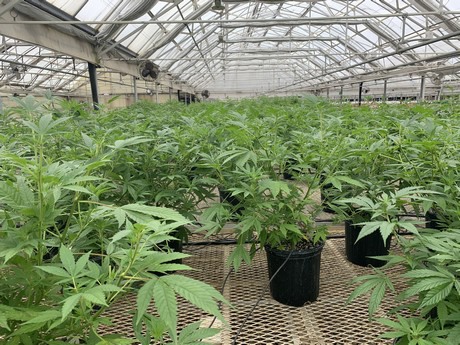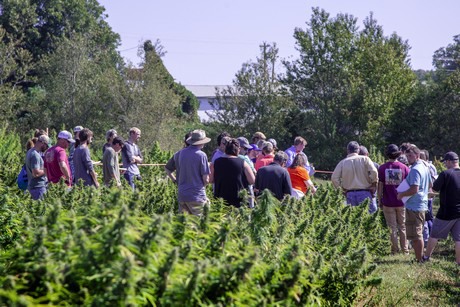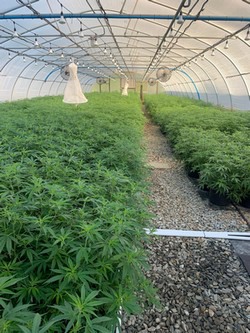An argument about the future of the cannabis industry revolves around the prediction that the market segregation will result in companies specialized in specific parts of the supply chain. This means that vertical integration will become rarer, and an increasing number of companies will only focus, for instance, on cultivating starting material, like seedlings and cuttings, while others will take them over to finish their growth. There is a company that has been pioneering that space already. “The Hemp Mine is a vertically integrated company which was one of the first to receive a permit in South Carolina,” Travis Higginbotham with The Hemp Mine explains. “We have a 60-acre field of production, our own critical CO2 extraction facility and manufacturing facility. We do everything, from seed to sale.”

The importance of stable genetics
One of the most interesting aspects of The Hemp Mine is that the company offers genetics from vegetative means to growers. “The stability of seed genetics in such an industry is paramount,” he explains. “There are good genetics out there performing nicely in some regions, but seeds are currently a risk for growers. The main reason is that within the same seed lot, you can have different phenotypes, differences in potency, in flower time, not to forget the notoriously poor germination rate. We want growers to be successful and be able to grow their cannabis outside without running the risk of wasting a crop.”
That’s why The Hemp Mine has been trialing its own genetics over the last few years before starting to produce cuttings and liners. “We have been working with the University of Tennessee to develop the Hemp Planting Map, which investigates data across the country regarding the temperature and the photoperiod. In this way, growers can transplant our plants without running the risk that they flower prematurely. Thanks to this, we know exactly what hour and minute our cultivar initiates flowering, so that our customer can grow accordingly while maximizing yield and staying compliant.”
Following strict SOPs
Travis continues to stress the importance of relying on stable genetics to grow hemp successfully. “It needs to justify the investment,” he says. “My business partner (Dr. Allison Justice) has been in the medical cannabis space for a while, and she has been the mastermind behind the development of our genetics. On the other hand, we have partners in North Carolina, Louisiana, Missouri, Michigan, Georgia, Texas, Florida and South Carolina, of course. They grow our mother stock for us as they are our internally production. Each of these greenhouses have to follow our SOPs for pest management, disease management, and for training the plants: that is, how they grow them, how they cut them, and they all follow the same metrics in the post-harvest, handling and shipping.”
The Hemp Mine also conducts field trial events, to show growers how their genetics perform. “Last season we hosted a field trial that lasted 14 days,” he says. “We thought that max 100 attendees were coming; eventually, there were 400.” In the field where the event took place, The Hemp Mine trialed multiple different genetics in order to compare them with their proprietary ones. “We have taken genetics across the country that would challenge the performance of ours,” he remarks. “And we wanted to see the results for ourselves. In the end, the harsh conditions of the south proved to be a bit too much for many. West Coast genetics did not perform well, some plants were too small, flowered prematurely, and were covered in diseases. It just demonstrated once again the quality of our genetics.”

 The Hemp Mine does not only sell young hemp plants, but also produces consumer products. “We as a company sell smokable flowers, and we sell bulk biomass,” Travis explains. “We also produce a wide range of full spectrum, broad spectrum and isolate products from tinctures to topicals. What we have to be aware of when growing hemp for production of consumer products is heavy metals, chemical crop protection, anything that could contaminate the final product. We take the proper precautions, so these are not a concern: we use biological control for pests, and we test and amend our soils before we cultivate.”
The Hemp Mine does not only sell young hemp plants, but also produces consumer products. “We as a company sell smokable flowers, and we sell bulk biomass,” Travis explains. “We also produce a wide range of full spectrum, broad spectrum and isolate products from tinctures to topicals. What we have to be aware of when growing hemp for production of consumer products is heavy metals, chemical crop protection, anything that could contaminate the final product. We take the proper precautions, so these are not a concern: we use biological control for pests, and we test and amend our soils before we cultivate.”
For more information: The Hemp Mine
The Hemp Mine
thehempmine.com
